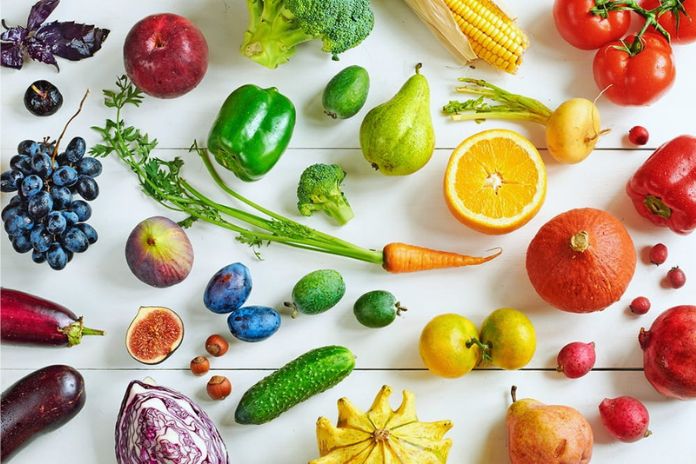Did you know that there are foods to be calmer and well-being? Just as there is the opposite, you may be feeding your anxiety. Take a look at this example and see if you relate.
It’s 6:30 am, and your alarm goes off. You wake up and feel like staying in bed, but you’ve already started thinking about the meeting you’re going to have later at work and imagining that your boss might not be having a good day; after all, “yesterday was pretty complicated,” .
You go to the shower, and while you try to forget about the boss, you remember your family meeting that will take place next weekend, in which you will again have to hear comments about not having married or getting pregnant yet.
You roll your eyes and already feel the anguish of being the target of questions from family members. Without realizing it, you are already there, creating and living these unpleasant scenes as if they were real.
So, your heart starts beating faster; your breathing becomes shallower and shallower, and you hurriedly drink your coffee as you grab your bag and leave the house.
Not knowing that coffee will only increase your anxiety even more. Your mind is not in the now but in the future, imagining what could happen, even if it may not be as you thought. Have you identified something similar in your everyday life?
This is the time when you are feeding your anxiety.
What Happens When You Feed Your Anxiety
When feeding anxiety, the levels of this feeling increase until it causes some physical discomfort, such as headaches or back pain, migraines, constipation, indigestion, or even more serious health problems, if anxiety is fed too often.
Anxiety also increases cortisol levels in the blood, as it triggers stress, which harms your physical and emotional health.
By remaining in an anxious state for a long time, the person overloads his heart, which may aggravate the condition of those with hypertension or a predisposition to other cardiovascular diseases.
How To Reduce Anxiety
If you’re feeling anxious, you can try using Lavender essential oil!
In addition to using relaxation therapies and meditation to alleviate anxiety, you can benefit from the practice of healthy eating to contribute to your emotional and mental balance.
As a conscious eating coach, I help people who have a busy life get to know food better and understand how its nutrients, preparation, and energy interact for those who want to live with integral well-being and awareness of their choices.
Integrative health, which I study, deepens this knowledge about food and its effects on the physical and emotional body, which increases awareness of the importance of taking care of food and using food strategically according to what the body needs most at a certain time.
Foods For Calmness And Well-Being
Find below six foods to be calmer and well-being. They contain vitamins, minerals, and other components related to the production of serotonin – a neurotransmitter responsible for the feeling of well-being and, consequently, for reducing the effects of stress, anxiety, and nervousness.
Oat
Oats are considered a natural sedative, which has calming properties, as it contains a substance called alkaloid, which helps to alleviate some symptoms of depression, anxiety, and insomnia, without any side effects.
Oats are the cereal with the highest amount of soluble fiber and also a source of magnesium, which helps regulate insulin secretion, which makes it a great choice to curb appetite, as it keeps the feeling of satiety for longer.
Avocado
Among the foods to be more calm and well-being, avocados and their variations – like the avocado – are great for brain health, reducing anxiety, and the desire to eat at all times.
Eating a small portion of the fruit, around ¼ of an avocado or half an avocado, is a great strategy to overcome anxiety symptoms.
Spinach And Kale
Dark green leafy vegetables, such as spinach and kale, are rich in magnesium, a mineral with anti-stress properties that is very important for human health.
The lack of this mineral can generate, in addition to, anxiety, agitation, insomnia, irritability, and other related symptoms.
Spinach is rich in folate (folic acid), a component of the B vitamins, important for metabolism by regulating the nervous and digestive systems and producing new red blood cells.
Chickpea
A source of fiber, this grain from the leguminous family is a great vegetable protein option for those who maintain a diet with little or no food of animal origin.
Your fibers help keep satiety longer and reduce cravings for sweets, usually caused by anxiety.
Frequent intake of chickpeas promotes the production of the hormone serotonin, the neurotransmitter responsible for the feeling of well-being and good mood, due to the presence of the amino acid tryptophan, also present in other legumes such as beans and lentils.
Sweet Potato
Sweet potato is a great food for calmer and well-being, as it contains soluble fibers that help keep glucose levels stable, reducing that feeling of wanting to snack at all times.
People with diabetes can use sweet potatoes with professional guidance to regulate blood glucose levels.
Turmeric (Or Indian Saffron)
Turmeric, or turmeric, is an ingredient that has been used in traditional Indian cuisine for thousands of years. The powder made from the bulb of the Curcuma Longa plant is easily found and can be added to various preparations, such as soups, meats, and sauces.
Its spicy flavor and golden-orange color bring energy and vitality to dishes. Using black pepper in preparations with turmeric is recommended to promote its beneficial effects further.
Also Read: Four Tips To Prevent Food Contamination

